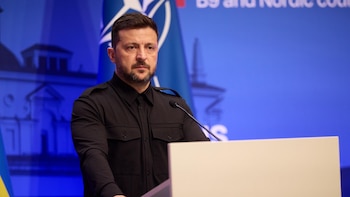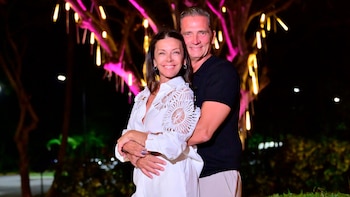
(ATR) The IOC has given a green light for athletes to speak their minds at the Tokyo Olympics.
Guidance issued last week by the IOC on where and when athletes can exercise their free speech during the Olympics is the most explicit advice the IOC has ever provided to athletes ahead of the Games. The three-page advisory also covers exceptions where protests and demonstrations are not allowed.
Allowed: during interviews and press conferences in mixed zones, Main Press Center and International Broadcast Center, team meetings and on social media platforms.
Not allowed: in the Olympic Village, field of play, during ceremonies.
None of this is new, covered by the long-standing Rule 50 in the Olympic Charter that was in effect when Tommie Smith and John Carlos jolted the world with their medal ceremony black power salutes in Mexico City in 1968.
The two men were sent home by the U.S. Olympic Committee under pressure from the IOC to enforce Rule 50. Back in the U.S. the two were subjects of ire or admiration, depending on one’s politics.
Now they are revered for their protest. Statues pay them tribute. In 2019 they were inducted into the U.S. Olympic and Paralympic Committee Hall of Fame. But these late in life awards from the same organization that sanctioned two men more than 50 years ago exposes the hypocrisy of it all.
It should be noted that the IOC has yet to memorialize Carlos and Smith the way they’ve been treated by the USOPC. To do otherwise would empty the meaning of rule 50, which bans any "demonstration or political, religious or racial propaganda."
But the IOC had to look the other way in 2002 when President George W. Bush went rogue with his statement to officially open the Salt Lake City Winter Olympics. Speaking just five months after the 9/11 attacks and eager to use patriotism as a salve, Bush could not resist breaking protocol when he stepped to the microphone at the opening ceremony.
"On behalf of a proud, determined and grateful nation, I declare open the Games of Salt Lake City, celebrating the Winter Olympic Games," was Bush’s declaration. He was only supposed to say "I declare open the Games of Salt Lake City, celebrating the Winter Olympic Games."
Yes, IOC members felt their feathers ruffle. But what gain would there be in nit-picking the U.S. president? And since it would be up to the USOC to pursue any criticism, the appetite for a squabble with the White House was faint.
Faint-of-heart does not apply to U.S. women’s soccer great Megan Rapinoe.
"We will not be silenced" she writes on her Instagram site about the IOC guidance. What that willmean in July when she and her teammates take the field in Japan remains to be seen. Rapinoe typically has taken a knee without consequence when the U.S. national anthem was played in World Cup matches.
"So much being done about the protests. So little being done about what we are protesting about," she posts.
Athlete advocacy Global Athlete says the IOC has already politicized sport. Athletes should not be told how to behave by the IOC says a statement from the group.
"Athletes devote years of their lives to qualify for the Olympic Games. If athletes want to speak up - in which they respect others rights and freedoms detailed in the Universal Declaration of Human Rights - we should embrace their diverse opinions. Silencing athletes should never be tolerated and to threaten them with removal from the Olympic Games is another sign of the imbalance of power between sport leaders and athletes," says Global Athlete.
IOC President Thomas Bach says adherence to the restrictions of Rule 50 is about preserving the unity of the Olympic Games.
"If this political neutrality is not respected, then the Olympic Games will divide, and not unite, the world," Bach said last week as the guidelines were published.
As certain are the do’s and don’ts of the guidelines, the penalties for violations are not prescribed. And breaches of the code will be handled on a case-by-case basis by national Olympic committees or international federations, not the IOC.
If history is any clue, it’s the USOPC that is most likely to deal with the fallout of athlete protests. U.S. athletes -- empowered by constitutional protection -- are the most outspoken.
In 1968 it was Smith and Carlos. In 2019 at the Pan Am Games in Lima, U.S. fencer Race Imboden took a knee during a medal ceremony. Hammer thrower Gwen Berry raised a clenched fist during her ceremony. The USOPC gave them each 12 months probation -- a tap on the wrist.
The Tokyo Olympics will coincide with the U.S. presidential election, and that could be a potential flashpoint for athletes such as Rapinoe, who is a fervent opponent of Donald Trump. Hot button issues will emerge in the coming months that inspire other reasons to protest.
Imagine an Olympic Games that give a carte blanche to political expression and protest. There could be chaos on the podium, a dismantling of the protocol that allows Olympians to hear the accolades they deserve.
The IOC has the right to make the rules. But without sanctions those rules are meaningless.
For the athletes at odds with government, discrimination or other just moral cause, acceptable avenues to express themselves at the Olympics appear to be plentiful.
To break the rules becomes civil disobedience, a force that has changed nations around the world. For those willing to step over the line to challenge the status quo, accepting the punishment with nobility may be just as important as the cause they are advocating.
Homepage photo: Wikimedia Commons
Reported by Ed Hula.
Últimas Noticias
Utah’s Olympic venues an integral part of the equation as Salt Lake City seeks a Winter Games encore
Utah Olympic Legacy Foundation chief of sport development Luke Bodensteiner says there is a “real urgency to make this happen in 2030”. He discusses the mission of the non-profit organization, the legacy from the 2002 Winter Games and future ambitions.

IOC president tells Olympic Movement “we will again have safe and secure Olympic Games” in Beijing
Thomas Bach, in an open letter on Friday, also thanked stakeholders for their “unprecedented” efforts to make Tokyo 2020 a success despite the pandemic.

Boxing’s place in the Olympics remains in peril as IOC still unhappy with the state of AIBA’s reform efforts
The IOC says issues concerning governance, finance, and refereeing and judging must be sorted out to its satisfaction. AIBA says it’s confident that will happen and the federation will be reinstated.

IOC president details Olympic community efforts to get Afghans out of danger after Taliban return to power
Thomas Bach says the Afghanistan NOC remains under IOC recognition, noting that the current leadership was democratically elected in 2019. But he says the IOC will be monitoring what happens in the future. The story had been revealed on August 31 in an article by Miguel Hernandez in Around the Rings

North Korea suspended by IOC for failing to participate in Tokyo though its athletes could still take part in Beijing 2022
Playbooks for Beijing 2022 will ”most likely” be released in October, according to IOC President Thomas Bach.




